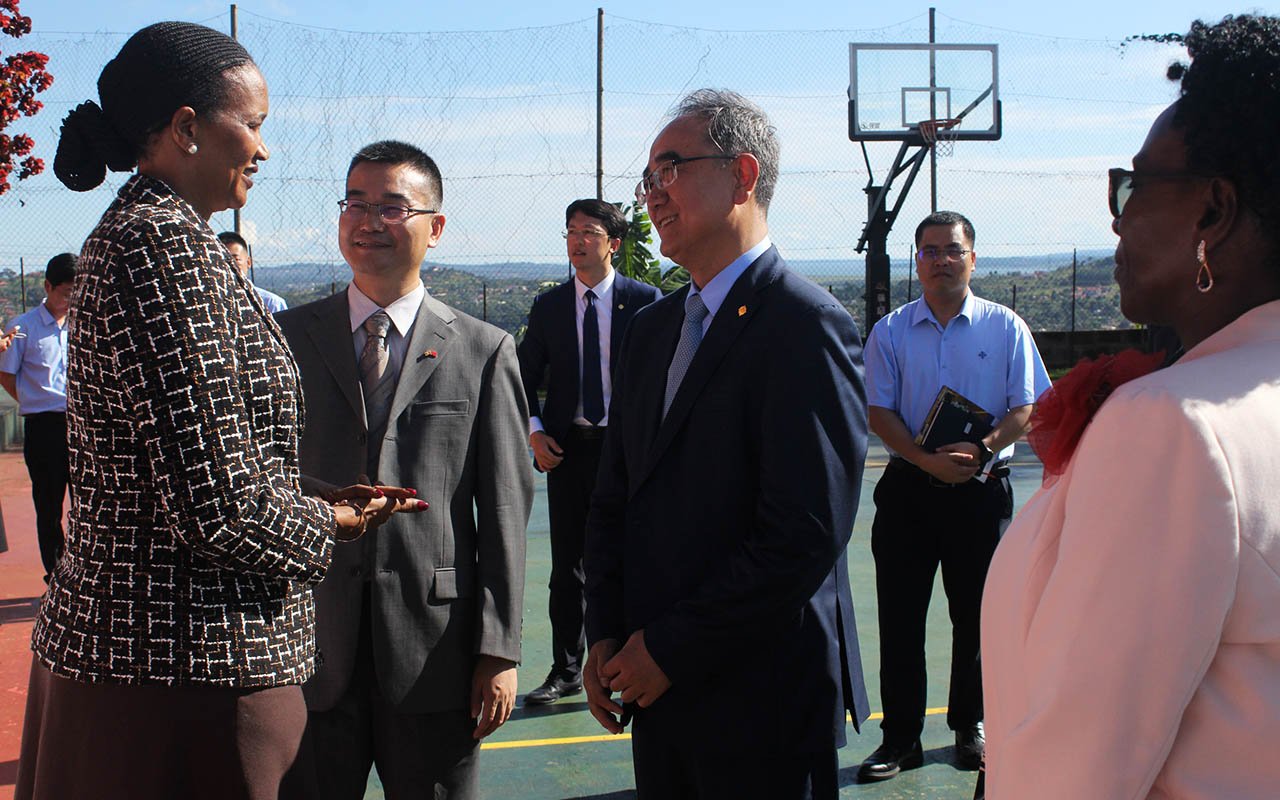Total boss speaks out on pipeline queries

Mr Patrick Pouyanné, Total Chairman and CEO
What you need to know:
- As such, any concerns relating to environment and social aspects, if not addressed, are likely to jolt investors.
The French oil giant Total SA chief executive, Mr Patrick Pouyanne, has acknowledged that the company’s oil projects in Uganda “represent significant social and environmental stakes” but said they are mindful of the fears and are “taking them into consideration.”
Mr Pouyanne said they are mobilising substantial resources to ensure the oil projects are carried out in an exemplary manner and to create value for the people in both countries.
“In view of the questions raised by stakeholders, the commitment of Total is to answer to all questions and to ensure complete transparency on the studies conducted by Total and independent third parties and the actions taken as a result,” Mr Pouyanne said in a statement from the company’s headquarters in Paris yesterday.
Total SA, the parent company of Total E&P, the lead developer of East African Crude Oil Pipeline (EACOP), made public the studies, including independent third-party reviews and social and environmental action plans of its Tilenga oil project in Nwoya and Buliisa districts.
“These projects are undertaken in a sensitive environmental context and require the implementation of land acquisition programmes with a specific attention to respecting the rights of the communities concerned,” the company said in the statement.
“Several independent reviews have been conducted by third-party organisations to ensure that the projects are implemented in compliance with social and environmental best practices. These reviews also allow assessment of the effectiveness of the actions undertaken, to identify areas of improvement and have resulted in related action plans,” the company added.
The statement came on the heels of a letter written by 260 civil society groups to the executives of Standard Bank—the parent company of Stanbic—the Industrial & Commercial Bank of China, and Japan’s Sumitomo Mitsui Banking Corporation raising environmental concerns on the oil investments and urging the banks not to finance the proposed EACOP.
Stakeholders
The banks are the transactional advisers for Uganda, Tanzania, China’s Cnooc and Total E&P on the multi-billion dollar pipeline.
However, the CSOs also copied the letter to other financial institutions likely to pool money to the project, including Agricultural Bank of China, ANZ, Bank of America, Bank of China, BNP Paribas; Citi, Credit Agricole, China Construction Bank, China International Capital Company, Credit Suisse, Deutsche Bank, Goldman Sachs, HSBC, JPMorgan Chase, Morgan Stanley, Mizuho, MUFG, OCBC, Royal Bank of Canada, Société Générale, Standard Chartered, Unicredit, UOB Group.
In their letter, the CSOs want the banks to publicly commit not to finance the EACOP project.
They want the banks to engage with governments of Uganda and Tanzania and other financiers to promote an energy future for East Africa that does not rely on oil or other fossil fuels, and demand that Total E&P acts immediately to provide adequate compensation to affected persons.
The capital expenditure for developing the 1,443km pipeline from Hoima in mid-western Uganda to Tanga Port in Tanzania, is $3.55b (Shs13 trillion), 70 per cent of which will be raised from international lenders.
As such, any concerns relating to environment and social aspects, if not addressed, are likely to jolt investors.
Total E&P backed the Hoima-Tanga route as the least cost alternative for Uganda to transport its oil to the international market on account of convenient constructability (flat terrain), highest availability (fully functional), lowest environmental footprint, and provided the shortest schedule for seeing first oil export—earliest mid-2020. This was besides Tanzania’s convenient land tenure of no freehold system.
Eighty per cent of the pipeline, 1,147km, will be on the Tanzanian side, and it is estimated that 80 per cent of the project capital expenditure will be spent in Tanzania.
The Ugandan section of the pipeline is about 296km through 10 districts and 25 sub-counties, and 172 villages.
[email protected]




